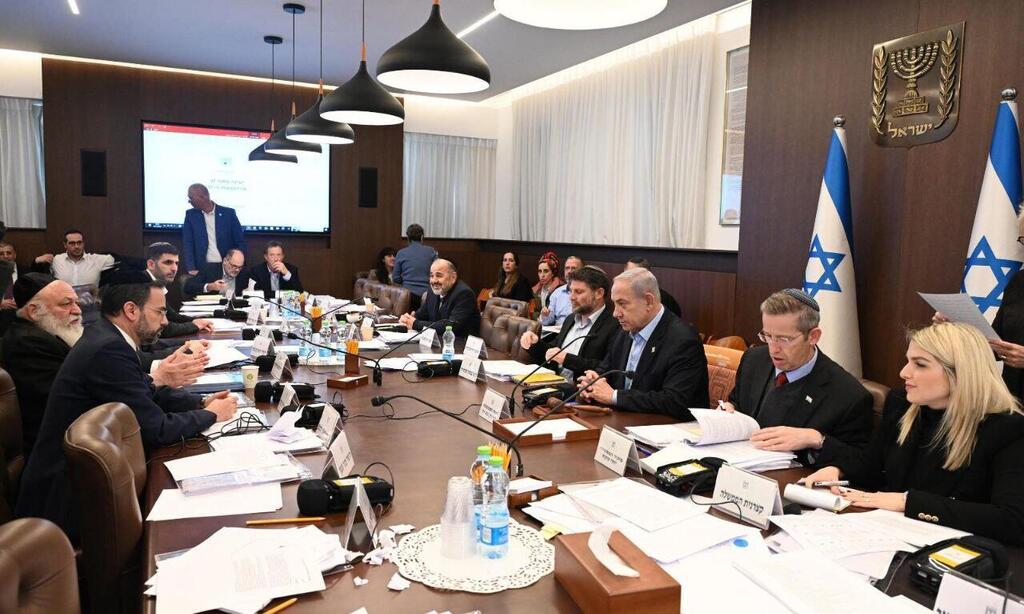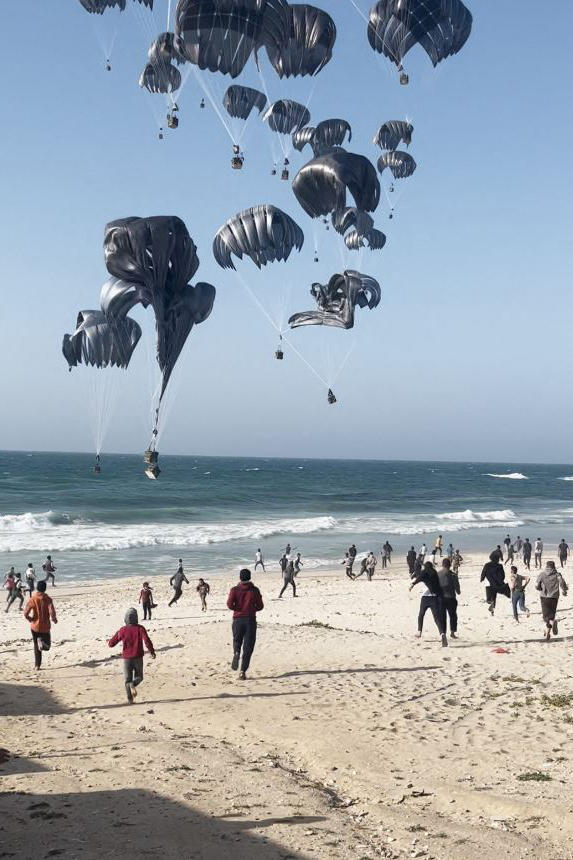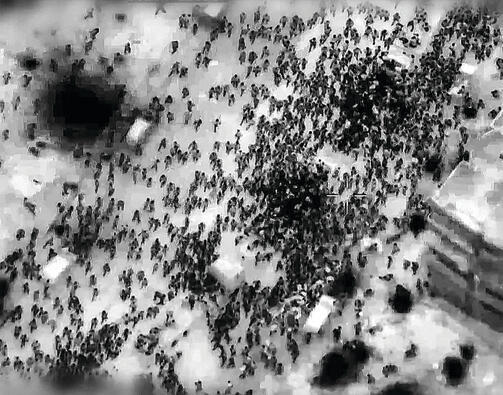Getting your Trinity Audio player ready...
As the IDF progresses in dismantling Hamas's military and administrative infrastructure in Gaza, the humanitarian crisis becomes more crucial in achieving victory in the war. Providing the Gazan civilians with their minimal needs is critical not just from moral and humanitarian considerations but also from practical necessity.
More stories:
Both international and Israeli officials confirm that a humanitarian disaster in Gaza is unfolding despite Israel's efforts to prevent it. If it escalates, the White House and international public opinion will not allow Israel to continue the war, the International Criminal Court (ICC) will accuse our soldiers of committing war crimes, IDF officers will not be able to travel abroad, and Israel would be challenged to to defend its people in legal proceedings.
7 View gallery
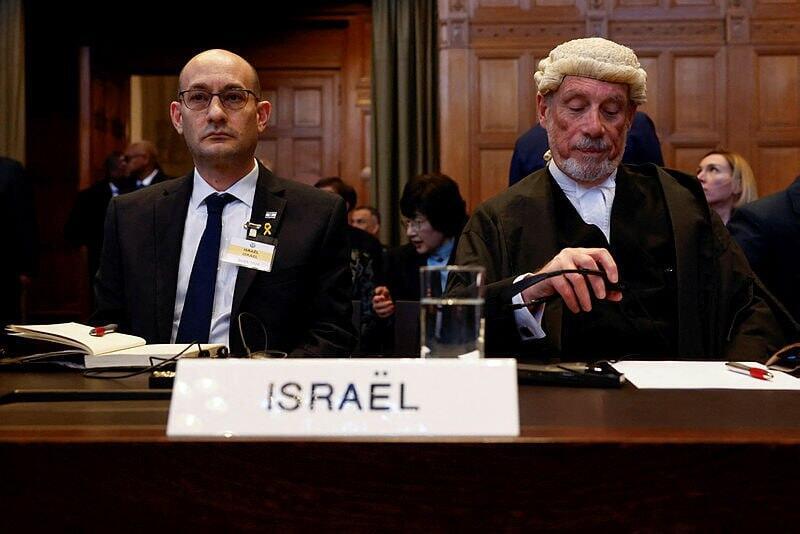

An escalation in the humanitarian disaster will result in frequent visits to ICC
(Photo: Reuters, Piroschka van de Wouw)
On the other hand, Israel will benefit if it acts reasonably, not from the gut, and allows humanitarian aid into the Strip to improve basic humanitarian conditions for the two million residents of there. In the current state of Gaza, he who controls the population's living conditions can undermine Hamas's rule. Absurdly, the fact that the IDF allows Hamas to steal or distribute the aid, allows Hamas to maintain control over Rafah and Dir al-Balah, which the IDF has not yet reached.
7 View gallery
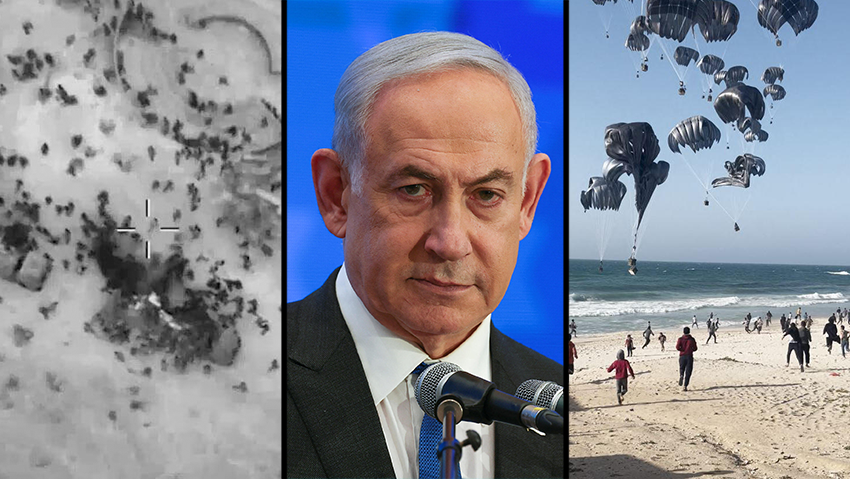

Netanyahu delaying decision regarding the day after and humanitarian aid
(Photo: REUTERS/Ronen Zvulun, Aline MANOUKIAN / AFP, IDF Spokesperson's Unit)
This is well known in Israel. Although the IDF has planned various scenarios for dealing with the matter of humanitarian aid, the hands of the Coordinator of the Government's Activities in the Territories (COGAT), who is responsible for implementing one of these options, are tied by the cabinet and mainly Prime Minister Benjamin Netanyahu failing to decide on a "day after" plan.
In such a situation where the humanitarian issue becomes so critical, it is important to clarify why Netanyahu is delaying setting the outline for the day after the war. The truth, according to security officials, is that Netanyahu wants to force the international community to establish an aid distribution system to be centrally managed by an international body led by the U.S. would along with Arab and European countries.
Netanyahu's vision opposes a Palestinian State in Gaza and the West Bank under the leadership of the Palestinian Authority and its president, Mahmoud Abbas and therefore pressures the international community to step in. The prime minister also succumbed to pressure from his coalition partners, ministers Itamar Ben-Gvir and Bezalel Smotrich, not to allow aid to enter Gaza as long as all the Israeli hostages have not been returned.
At the same time, IDF Arabic Spokesman Lieutenant Colonel Avichay Adraee announced tactical pauses for humanitarian purposes in various places around Gaza that will continue throughout the week without the knowledge of the Israeli public. These pauses are intended to appease the Americans after the humanitarian trucks disaster in northern Gaza and possibly to facilitate a prisoner exchange deal without a Hebrew update so as not to anger Netanyahu's coalition partners.
7 View gallery
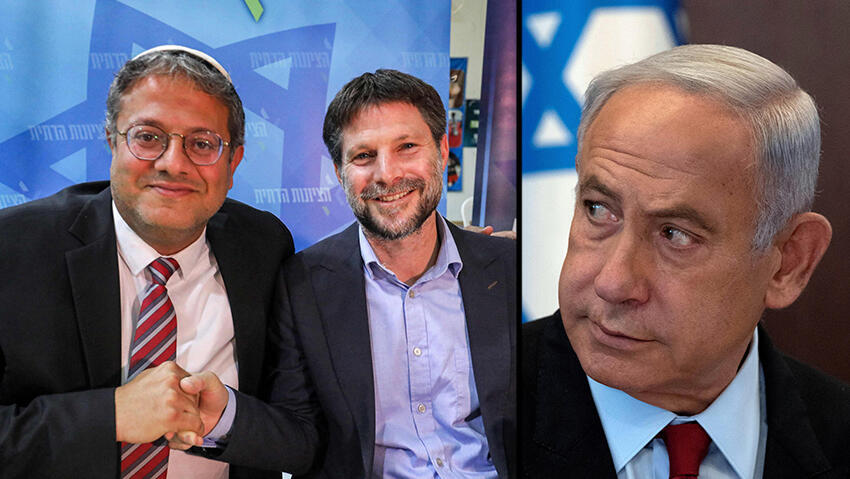

Netanyahu pressured by Ministers Ben-Gvir and Smotrich from government
(Photo: AFP, Reuters)
Based on the aid truck disaster, it is estimated that additional disasters of this kind are on the way, which means Israel must act to prevent them. Dropping aid from planes is a 'drop in the ocean' for Gazans who need flour, oil, and water and does not address the need for medical assistance. Israel can make a difference and gain valuable legitimacy points it requires to continue the war.
The IDF can take several simple actions to alleviate the humanitarian disaster. For example, it can allow aid to enter through several points in northern Gaza where it has full control. The aid will come through the Ashdod port, or come from Cyprus and be placed on the Gazan coast by Americans and NATO forces in areas controlled by the IDF. The IDF can also establish several secured distribution centers where aid will be directly distributed to those in need by the UN and not by IDF soldiers.
The IDF could adopt other solutions through cooperation with the U.S. and international organizations. It has been reported in the international media that the IDF is preparing shelter areas where Egypt and the United Arab Emirates will provide tents and structures for the evacuated refugees from Rafah.
7 View gallery
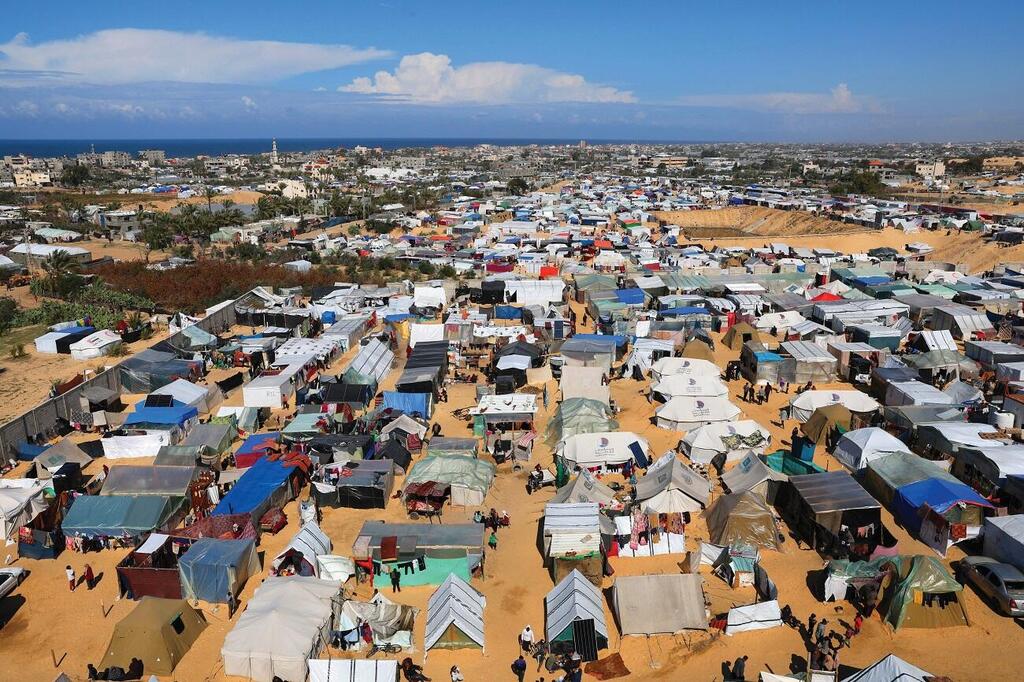

Tent camp in Rafah will have to be evacuated before IDF operation
(Photo: Ibraheem Abu Mustafa, Reuters)
Cooperating with the international community will greatly benefit Israel: we will gain legitimacy and support from the U.S. as well as international public opinion, while we also undermine Hamas's civilian rule. Whoever controls the aid also controls the population, and when Hamas does not control Gaza militarily or its people, it will be easier to find countries, including Arab states, who will agree to intervene and alleviate the distress of the Palestinian population in Gaza.



